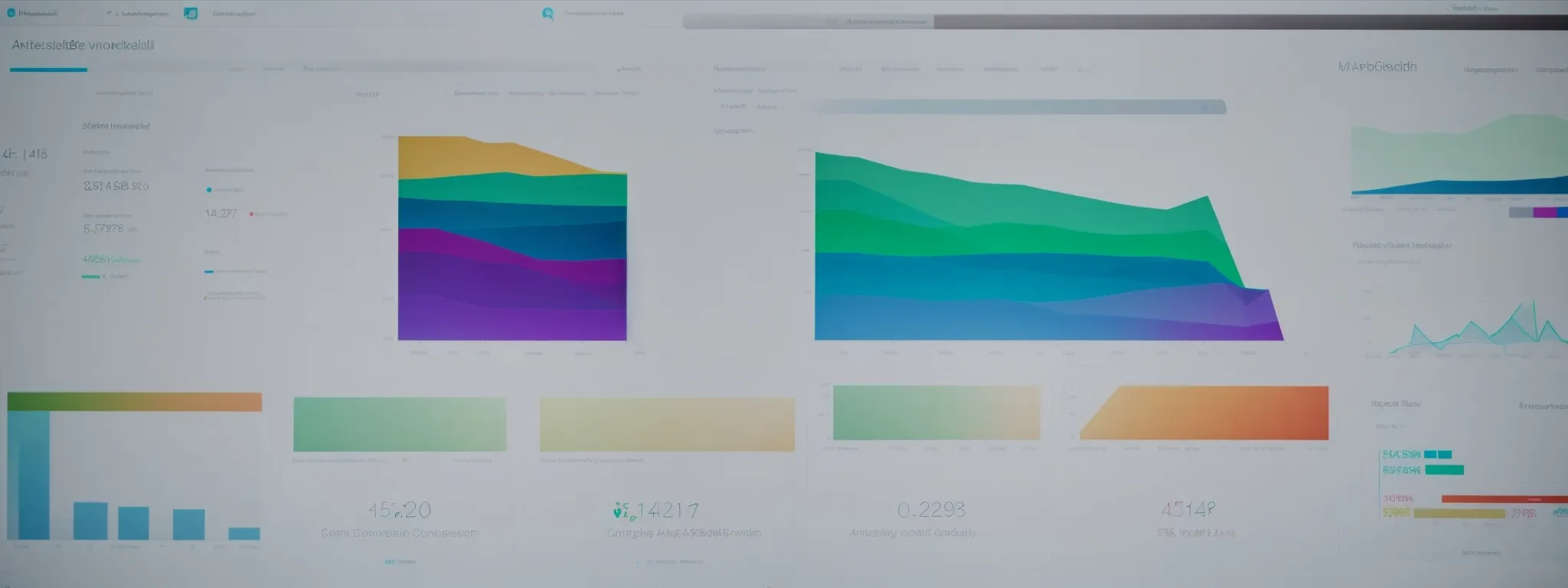SEO Keyword Research
Essential Guide to SEO Keyword Research Navigating the competitive landscape of search engine optimization requires a keen understanding of the crucial role played by SEO keyword research. […]
Essential Guide to SEO Keyword Research
Navigating the competitive landscape of search engine optimization requires a keen understanding of the crucial role played by SEO keyword research.
At the core of every successful SEO strategy lies the meticulous selection and analysis of keywords that align perfectly with the search intent of the target audience.
Companies seeking to elevate their online presence, such as LinkGraph with its comprehensive SEO services, understand that keyword research is not merely about finding terms; it’s about unveiling the queries that will ultimately drive traffic and conversion.
In this article, let’s uncover the layers of SEO keyword research, from the seed keywords that spark the process to the sophisticated tools that extract the richest insights.
Keep reading to transform your approach to keyword discovery and gain a competitive edge in the search results.
Key Takeaways
- LinkGraph’s SEO Services Provide in-Depth Keyword Research, Aligning Content With User Search Intent for Better Visibility
- Advanced SEO Tools Like SearchAtlas SEO Software Streamline the Keyword Research Process, Offering Valuable Insights and Analytics
- Long-Tail Keywords Are Integral to Refined SEO Strategies, Targeting Specific Audiences and Potentially Yielding Higher Conversion Rates
- Continuous Monitoring and Adjusting of Keyword Strategies Is Necessary to Keep Up With Evolving Search Patterns and Maintain Relevance
- Embracing Emerging Search Trends, Such as Semantic and Voice Search, Is Essential for an Adaptive and Future-Proof SEO Strategy
Understanding the Basics of SEO Keyword Research

Mastering the Art of SEO Keyword Research is pivotal for businesses striving to capture targeted search traffic.
This intricate process goes well beyond mere guesswork; it delves into understanding the search intent behind each query, identifying the precise terms an audience uses, and assessing how these keywords mold a brand’s content marketing strategy.
Distinctions between short-tail and long-tail keywords play a significant role, with each type offering unique advantages and challenges in Search Engine Optimization Efforts.
Recognizing the profound impact that a carefully curated keyword list can have on visibility, LinkGraph’s SEO services ensure Tailored Solutions that resonate with specific audience needs, propelling websites to the forefront of SERPs.
Defining What SEO Keyword Research Involves
SEO keyword research is a systematic approach for discovering the terms and phrases that potential customers type into search engines. By conducting this research, companies can align their website and content with the user’s search intent, thereby optimizing their potential for higher rankings in search results.
In this analytical endeavor, the goal is to uncover valuable keyword opportunities that may have been overlooked, like emerging trends or niche-specific terms. LinkGraph’s SEO services leverage sophisticated SEO tools, such as SearchAtlas SEO Software, which streamline the keyword identification process and enhance the precision of targeting desired search groups.
The Importance of Keywords in SEO
In the sphere of search engine optimization, keywords function as the cornerstone, connecting the searcher with relevant content from brands and service providers. LinkGraph’s SEO services underscore that the Strategic Use of Keywords is instrumental in enhancing a website’s visibility and driving search traffic that is aligned with the company’s offerings and value propositions.
With their ability to reveal the nuances of the audience’s search behavior, keywords are not merely words; they are powerful indicators of consumer interests and market trends. This connection between the user’s search query and the content presented by a website is a fundamental aspect that SearchAtlas SEO software by LinkGraph facilitates, enabling businesses to orchestrate an SEO content strategy that resonates with and captivates their target audience.
Differences Between Short-Tail and Long-Tail Keywords
In the complex tapestry of SEO strategy, short-tail keywords, often referred to as head terms, are general search terms composed of one to two words. They boast substantial search volumes but bring along fierce competition and a broad search intent that may not convert as efficiently as more specific phrases.
Conversely, long-tail keywords typically span three or more words, painting a detailed picture of the searcher’s intent. These terms, while harboring lower search volumes, present a clearer insight into the searchers’ needs, and LinkGraph’s SEO services expertly harness their potential for attracting a more engaged, conversion-ready audience to a company’s digital doorstep.
Initiating Your Keyword Research Journey

Embarking on the journey of SEO keyword research necessitates a keen understanding of one’s market niche and the audience therein.
Crafting a SEO strategy that effectively targets the right users starts with meticulous niche identification, laying a foundation for ideation and competitive analysis.
Brands often kickstart this process by brainstorming to uncover a tapestry of potential terms that resonate with their unique product or service offerings.
This initial phase paves the way for a deeper exploration of competitor keyword strategies, a pivotal move that reveals the landscape of existing keyword battles and opportunities for differentiation.
LinkGraph’s SEO services facilitate this multifaceted approach, ensuring that businesses not only discover keyword ideas that reflect their specialty but also position themselves sharply within the competitive arena.
Identifying Your Niche for Targeted Keyword Research
Targeted keyword research starts with a crystal-clear understanding of one’s niche; this alignment is vital for crafting an SEO strategy that is not just visible, but impactful. LinkGraph’s SEO services shine a spotlight on the significance of niche comprehension, recognizing it as the springboard from which all keyword exploration should leap.
Diving into niche identification involves dissecting the core attributes of a business and its audience: the intersection of what a company excels at and the specific needs or problems their customers are trying to solve. The following steps outline this critical stage:
- Assess the unique value proposition that distinguishes a company within its market.
- Identify the seed keywords that encapsulate the essence of the brand and its products or services.
- Analyze the target audience’s language and search behaviors to align with their needs.
Using Brainstorming Techniques to Gather Initial Ideas
At the genesis of the keyword research process, companies should engage in creative brainstorming sessions, inviting diverse perspectives from various departments. The cross-pollination of ideas from sales, marketing, customer service, and product development teams can yield an initial keyword bounty that reflects both the internal understanding of the product and the vernacular of the customers.
LinkGraph’s SEO services, aware of the dynamic nature of search behaviors, encourage brands to consider current industry buzzwords, topical events, and seasonal shifts as part of these brainstorming discussions. This proactive approach ensures that the keyword foundation is both robust and adaptable, poised to capture the fluidity of user search patterns.
Analyzing Your Competitors’ Keyword Strategies
Competitive Analysis Stands as a critical element in developing an effective SEO strategy. Businesses must survey the keyword terrain to discern where rivals are investing their SEO efforts and identify gaps that can be exploited.
LinkGraph’s SEO services consider competitor keyword strategies as vital intelligence, guiding companies in refining their own keyword targeting. Recognizing competitor successes and shortcomings paves the way for improved SEO maneuvers:
| Competitive Analysis Components | Benefits |
|---|---|
| Keyword Overlap | Identifies common ground and search query battles. |
| Unique Keywords | Reveals untapped opportunities for differentiation. |
| Keyword Gap Analysis | Drives strategic decisions to capture missed audience segments. |
Leveraging Keyword Research Tools Effectively

The digital marketing landscape is replete with an array of keyword research tools designed to arm SEO professionals with the data they need to outmaneuver the competition.
The effectiveness of an SEO content strategy hinges on the insights garnered from these resources, guiding brands in uncovering search volumes, keyword difficulty, and other critical metrics.
By carefully evaluating the offerings of both free and paid platforms, businesses can equip themselves with a powerful arsenal for their keyword research, ensuring every content decision is data-driven and strategically sound.
With an understanding of the digital tools at their disposal, companies can embark on a journey that not only illuminates their SEO pathway but also optimizes their entire approach to content marketing.
An Overview of Popular Keyword Research Tools
In the toolbox of SEO professionals, keyword research tools are indispensable, providing an extensive overview of search data that informs content strategies. Among these tools, SearchAtlas SEO software emerges as a standout choice, delivering comprehensive search insights and keyword analysis necessary for enhancing a brand’s online presence.
Such tools streamline the SEO keyword research process, offering a platform for users to discover high-value keywords, analyze search volume, and evaluate keyword difficulty. LinkGraph’s SEO services integrate these functionalities, offering businesses a strategic advantage through deep insights into the search behaviors of their target audience.
Understanding the Metrics Provided by Keyword Tools
Professional growth in SEO hinges on one’s proficiency in interpreting the rich tapestry of metrics these keyword research tools offer. SearchAtlas SEO software, an asset within LinkGraph’s SEO services, plays an instrumental role by providing precise keyword data that informs content relevancy, user engagement potential, and overall SEO strategy effectiveness.
Understanding search volume and keyword difficulty metrics is foundational to gauging the potential each keyword holds in attracting visitors to one’s digital assets. LinkGraph’s adept SEO services utilize such critical insights to meticulously refine keyword strategies, ensuring businesses can seize compelling opportunities in the search engine landscape.
Comparing Free and Paid Keyword Research Resources
The discerning eyes of SEO professionals often debate the merits of free versus paid keyword research tools. Free resources such as Google’s Keyword Planner provide core insights, giving companies a straightforward method of identifying basic keyword metrics like search volume and competition levels.
Contrastingly, paid tools, including LinkGraph’s SearchAtlas SEO software, offer a more nuanced view of the search landscape with advanced analytics and tailored reports. The sophistication of paid resources brings a multi-dimensional perspective to search data that can fine-tune an SEO strategy:
- Paid tools often include deeper analyses of SERP features, user click-through rates (CTRs), and more precise keyword suggestions.
- The investment in a premium service equips SEO professionals with comprehensive backlink analysis and robust competitive intelligence capabilities.
Unveiling the Power of Long-Tail Keywords for SEO

In the realm of search engine optimization, the strategic deployment of long-tail keywords stands as a pivotal tactic for those aiming to hone in on a specific target audience.
These extended phrases, rich with specificity, cater to a user’s detailed search intent, garnering a level of precision unmatched by their shorter counterparts.
As organizations refine their SEO content strategy, understanding the advantages and challenges inherent to long-tail keywords becomes paramount.
This section delves into the intricacies of identifying fertile long-tail opportunities and effectively weaving them into a content strategy, promoting enhanced visibility and user engagement in today’s competitive digital landscape.
Pros and Cons of Targeting Long-Tail Keywords
Targeting long-tail keywords in SEO strategy equips businesses with the advantage of reaching an audience whose search intent is more clearly defined. These select phrases, often indicative of a user further along in the decision-making process, can result in higher conversion rates for the discerning company leveraging LinkGraph’s SEO services.
On the flip side, while long-tail keywords offer specificity and reduced competition, they may also attract a smaller pool of search traffic compared to their short-tail contemporaries. Businesses must weigh this aspect against their overall goals, recognizing that balance is key to an SEO content strategy that capitalizes on the targeted appeal of long-tail keywords without sacrificing potential visitor volume.
Finding Long-Tail Keyword Opportunities
Discovering long-tail keyword opportunities demands a keen eye for detail and a data-driven approach. LinkGraph’s SEO services are well-versed in recognizing patterns within search queries, tapping into customer conversations, and employing advanced keyword tools that reveal less obvious yet potentially lucrative phrases that are closely matched to specific search intent.
Throughout this explorative journey, it is crucial for companies to analyze keyword suggestions that stem from a variety of sources, such as industry forums, customer feedback, and query autocomplete features in search engines. Leveraging SearchAtlas SEO software enables SEO professionals at LinkGraph to uncover these niche phrases, providing businesses with the tools to attract a targeted and engaged audience.
Integrating Long-Tail Keywords Into Your Content Strategy
Successful integration of long-tail keywords into a content strategy demands that each phrase be contextually woven into the narrative of the website’s copy, blog posts, and various other digital content forms. This meticulous infusion ensures that each piece resonates with the target audience’s search intent, bolstering the relevance and authority of the brand in search engine results.
Steering the direction of content with long-tail keywords involves a harmonious blend of creativity and analytics: a content strategy that marries long-tail keywords with compelling narratives transforms search engine visibility into meaningful engagement and conversion. Such a strategy fortifies a brand’s digital presence, attracting visitors who are actively seeking the depth and specificity that these keywords encompass.
- Identification of optimal locations within content to inject long-tail keywords without disrupting readability
- Adjustment of meta descriptions and title tags to reflect long-tail keyword inclusion, enhancing SERP click-through rates
- Creation of dedicated pages or blog posts that address the nuanced queries associated with the selected long-tail phrases
Mastering the Art of Keyword Relevance and Intent

In an ever-evolving digital ecosystem, the mastery of keyword relevance and intent emerges as a cornerstone of SEO efficacy.
The intersection where the precise language of search queries meets the meticulous crafting of content is where true optimization begins.
Aligning keywords with user intent is not merely a task—it is an art form that requires understanding the nuances of how each search term fits within the larger context of the buyer’s journey.
Businesses must not only identify but also prioritize keywords that resonate with relevance and high search demand, ensuring that their digital footprint speaks directly to the needs and intents of their target audience.
As the SEO landscape becomes increasingly competitive, a strategic emphasis on keyword relevance and intent is the herald of success in capturing and converting search traffic.
Aligning Keywords With User Intent
The intricate alignment between keywords and user intent is paramount for the efficacy of an SEO campaign. LinkGraph’s SEO services focus on matching the nuanced intentions of users conducting search queries with pertinent target keywords that provide immediate relevance and comprehensive solutions, thereby fostering a connection that is mutually beneficial to both the searcher and the company.
For SEO strategies to thrive, they must transcend the superficial matching of keywords and delve into the behavioral patterns and needs of their audience. By harnessing the intelligence gathered from keyword research tools, LinkGraph’s SearchAtlas SEO software expertly aligns keywords with the specific intent, ensuring that every piece of content becomes a strategic beacon that effectively draws in and satisfies the informational or transactional needs of potential customers.
Categorizing Keywords by the Buyer’s Journey
Segmenting keywords according to the buyer’s journey equips businesses with a navigational roadmap for their content, guiding potential customers through awareness, consideration, and decision-making phases. LinkGraph’s SEO services meticulously categorize search terms to ensure that each stage of the journey is met with valuable, intent-driven content, thus optimizing the path to conversion.
Utilizing SearchAtlas SEO software, LinkGraph’s diligent approach to categorizing keywords offers a targeted content strategy that tailors messaging and information to the user’s evolving needs. By contextualizing keywords with the buyer’s journey, businesses establish a firm content structure that aligns with customer progression, augmenting the chances for meaningful engagement and successful outcomes.
Prioritizing Keywords Based on Relevance and Search Demand
Prioritization of keywords is a strategic endeavor, one that LinkGraph’s SEO services perform with precision by assessing the relevance of each keyword against the backdrop of search demand. By carefully balancing terms that directly resonate with a company’s products and services and those that users frequently query, a more prominent search engine position is secured, capturiing the right traffic for business growth.
LinkGraph’s dedicated approach involves a Meticulous Sift Through Search Data to spotlight keywords that are not only pertinent to the audience but also exhibit a substantial search volume. This methodical filtration process ensures client websites are optimized for the most impactful keywords, elevating their visibility to the target customers actively seeking their offerings.
Crafting a Comprehensive Keyword List

Constructing a well-rounded keyword list is the cornerstone of any successful SEO strategy, imbuing a brand’s online content with the magnetic pull necessary to attract and engage a relevant audience.
The process of assembling such a list is both calculated and creative, requiring the amalgamation of high-searched terms and the unsung niche phrases that together make for a diversified keyword portfolio.
LinkGraph’s SEO services excel in mapping out an SEO landscape tailored with precision, ensuring that each keyword serves a strategic function in the overarching content plan.
In a world where digital landscapes are in constant flux, the continuous refinement and organization of keywords become imperative, breathing vitality into the evolving narrative of a brand’s online presence.
The subsequent topics lay a foundation for businesses to create and nurture an SEO arsenal conducive to growth, relevance, and audience connection.
Steps to Create a Diverse and Robust Keyword List
The genesis of a powerful keyword list commences with the employment of robust keyword research tools and methods. LinkGraph’s SEO services utilize these platforms to extrapolate a diverse array of keywords, ensuring a blend of both high-volume search terms and niche-specific phrases that cater to various stages of the buyer’s journey.
Once the foundational keywords are pinpointed, LinkGraph’s expertise guides the enrichment process, expanding upon seed keywords to architect a keyword inventory that’s fertile in opportunity and variety:
- Analysis of search volume and competition data to gauge keyword potential.
- Incorporation of long-tail keywords for specificity and higher conversion rates.
- Continuous refinement based on keyword performance metrics and search trends.
Such methodical crafting and continual optimization of a keyword list by LinkGraph’s SEO strategists not only broadens the reach but also deepens the relevance of a brand’s content to its intended audience.
Organizing Keywords for Strategic Deployment
For LinkGraph’s SEO services, the strategic deployment of keywords is a refined science, where meticulous organization plays a critical role. Keywords are clustered by thematic relevance and search intent to construct a coherent structure that leads users smoothly along the content journey, strategically guiding them from general awareness to conversion readiness.
LinkGraph employs advanced SEO tools like SearchAtlas SEO software to segment keywords meticulously, thereby enabling a precise match with the content’s topical focus areas. This granular categorization facilitates an agile content strategy, where relevant keywords are efficiently deployed on targeted pages, enhancing the likelihood of high SERP rankings and conversion optimization.
Continuous Refinement of Your Keyword List Over Time
A fundamental aspect of enhancing an SEO strategy is the ongoing reevaluation and updating of a keyword list. LinkGraph’s SEO services understand that the search landscape is ever-changing, prompting the need for regular analysis to ensure the keywords retain their efficacy and continue to drive the desired search traffic.
Iterative optimization by SEO professionals at LinkGraph includes monitoring keyword performance, adjusting to changes in search patterns, and seizing emerging keyword opportunities. Through this, businesses maintain a competitive edge in search engine rankings, amplifying their online visibility and relevance over time:
- Monitoring shifts in search engine algorithms and user behavior.
- Adjusting keyword priorities based on analytical insights and performance data.
- Incorporating fresh, high-potential keywords to keep pace with market trends.
Mapping Keywords to Your Content Strategy

As brands navigate the digital landscape, the implementation of a strategic content strategy is paramount, with keyword research sitting at its heart.
Within the orchestration of digital content, the nuanced placement of keywords emerges as a vital task, one that LinkGraph’s SEO services approach with a blend of analytical acumen and creative finesse.
A well-executed content strategy not only features target keywords but does so in a manner that feels organic to readers, enhancing both the user experience and search engine rankings.
This balance is further refined when considering keyword density – the frequency of keyword use within the content, which must be optimized to avoid penalties for keyword stuffing while maintaining relevancy.
Businesses equipped with such knowledge are better positioned to draw in a targeted audience and elevate their online presence.
Best Practices for Keyword Placement in Content
Intelligently Integrating Keywords into content is a skill LinkGraph’s SEO services excel at, placing emphasis on relevance and subtlety. Proper keyword placement involves featuring keywords in title tags, headers, and within the first 100 words of content, ensuring that search engines can quickly ascertain the topic of the page while remaining naturally engaging for the reader.
Another impactful practice is the strategic distribution of keywords throughout the body of the content, maintaining a balance that avoids redundancy. LinkGraph’s SEO professionals understand that the value of content is not just in its SEO effectiveness but also in its readability and ability to provide informative value, ensuring keywords enhance rather than detract from the user experience.
Creating Content That Naturally Incorporates Target Keywords
The artistry of infusing content with target keywords lies in the seamless integration that resonates with the reader’s intent without overshadowing the narrative’s natural flow. LinkGraph’s SEO services provide expertise in crafting content that carefully embeds target keywords, elevating the material’s relevance for both search engines and users seeking specific information.
It starts with understanding the subtle nuances of language used by the audience and then creating content that aligns with these expressions, ensuring every interaction is meaningful. By utilizing this approach, LinkGraph ensures that keywords are not simply inserted into content but are an integral part of a cohesive story that captivates and informs the reader.
Understanding the Role of Keyword Density in Content
Keyword density, often considered in the realm of search engine optimization, refers to the frequency at which a target keyword appears within a website’s content relative to the total word count. LinkGraph’s SEO services emphasize the delicate balance required in achieving optimal keyword density, signifying relevance to search engines while maintaining the natural cadence of the message for the audience.
Maintaining an optimal keyword density is a strategic exercise that prevents potential penalties associated with keyword stuffing, which can detrimentally impact a website’s search rankings. LinkGraph’s SEO professionals adeptly integrate target keywords into content, ensuring they support the subject matter and user engagement without compromising the integrity of the brand’s voice and readability.
Analyzing and Adapting to Keyword Performance

In the labyrinth of search engine optimization, persistent vigilance over keyword performance separates the proficient from the fledgling.
The adaptability of an SEO strategy to the mercurial nature of keyword efficacy is no small feat, necessitating a continuous cycle of evaluation, refinement, and evolution.
Organizations that take a proactive stance, frequently monitoring keyword rankings, extracting insights from analytics, and responding to the shifting sands of search engine algorithms, find themselves at the helm, steering toward sustained visibility and relevance.
Thus begins the advanced tactical phase where SEO maestros at LinkGraph’s SEO services harmonize data-driven adaptations with strategic foresight, ensuring that content remains not just current, but ahead of the curve.
Monitoring Your Keyword Rankings and Performance
Meticulous monitoring of keyword rankings is an integral service provided by LinkGraph, offering real-time insights into a website’s SEO performance. This vigilant oversight enables businesses to track fluctuations in search positions, gain a clear perspective on the efficacy of their SEO efforts, and stay attuned to the competitive dynamics within their industry.
LinkGraph’s SEO professionals utilize advanced tools like SearchAtlas SEO software to analyze and interpret keyword performance data. This analytical prowess empowers companies to swiftly adjust their strategies, ensuring that their online presence is optimized to meet the ever-changing demands of search engine algorithms and user search behaviors.
Adjusting Strategies Based on Analytics Insights
In the fast-paced world of digital marketing, adjusting SEO strategies based on analytics insights is not just advantageous, it’s imperative. LinkGraph’s SEO services are anchored in the ability to interpret web analytics, discern patterns of success and areas for improvement, and recalibrate SEO tactics accordingly. These adjustments ensure a company’s digital presence is consistently aligned with current search behaviors and market conditions.
Proactive SEO management necessitates making strategic decisions grounded in data. The utilization of analytical insights helps LinkGraph ensure their client’s content is always at the forefront, engaging the target audience effectively. This approach ensures sustained relevance, higher search engine rankings, and, ultimately, a stronger return on investment.
| Action | Benefit |
|---|---|
| Interpreting Analytics Data | Enables informed SEO strategy adjustments in real-time. |
| Recalibration of Tactics | Ensures the content remains relevant and competitively ranked. |
| Targeted Content Optimization | Increases engagement and conversions from the desired audience. |
Keeping Up With Evolving Search Trends and Algorithm Updates
Staying abreast of search trends and algorithm updates is imperative for maintaining SEO relevance, where constant vigilance is a mandate, not a choice. LinkGraph’s SEO services employ a proactive approach, ensuring that clients’ content strategies evolve alongside these critical changes, thus securing their rankings and online prominence amid search engines’ ever-shifting criteria.
By deploying the latest SEO tools and methodologies, LinkGraph adeptly navigates the SEO landscape, adjusting client keyword strategies in sync with the latest search patterns and algorithm modifications. This foresight enables businesses to not just react to changes, but to anticipate and capitalize on them, keeping a step ahead in a competitive digital marketplace.
Future-Proofing Your Keyword Strategy

As digital landscapes evolve and consumer behaviors shift, crafting a keyword strategy that withstands the test of time is imperative for sustained SEO success.
Ambitiously forward-thinking, LinkGraph’s SEO services consider the growing intricacies of semantic nuances and the rising prevalence of voice search in optimizing content.
By actively embracing emerging trends and incorporating innovative research techniques, their approach ensures that keyword strategies remain dynamic, deeply resonant with search engines and users alike, and are primed to meet the challenges of tomorrow’s SEO demands.
Anticipating Shifts in Keyword Popularity and Usage
Staying ahead in the realm of SEO demands an astute awareness of trends that can sway the popularity and usage of keywords. LinkGraph’s SEO services are distinguished by their proactive surveillance of market movements and user behavior, allowing them to anticipate changes and revise keyword strategies accordingly.
As the lexicon of internet users evolves with emerging technology and cultural shifts, LinkGraph expertly adjusts its keyword strategies to align with current vernacular and search patterns. This foresight minimizes the risk of obsolescence and maintains a brand’s relevance in the volatile terrain of search engine rankings.
Embracing Semantic Search and Voice Search Trends
As search technology advances, embracing semantic search and voice search trends becomes not just advantageous but essential. Semantic search refers to the ability of search engines to understand user intent and the contextual meaning of terms as they appear in the searchable datasphere, enabling a more dynamic and tailored SERP. This sophistication in search underscores the importance for LinkGraph’s SEO services to optimize content that transcends literal keyword matching, ensuring comprehension and compatibility with these intelligent systems.
Concurrently, the surge in voice search usage, driven by the popularity of AI assistants, necessitates a shift towards conversational keywords and questions-based queries. LinkGraph recognizes the impact of this evolution on SEO practices, guiding clients to incorporate more natural language into their keyword strategies, thereby aligning with the spoken inquiries of users and staying ahead of technological advancements.
| Search Trend | SEO Implication | Strategy Adjustment |
|---|---|---|
| Semantic Search | Need for context-aware content | Focus on user intent and topic relevancy |
| Voice Search | Shift towards natural language | Incorporate conversational keywords and phrases |
Adapting to New Keyword Research Methodologies and Tools
The evolution of keyword research methodologies and the continuous improvement of tools are pivotal elements in maintaining a robust SEO strategy. LinkGraph’s SEO services remain on the cutting edge by embracing the latest in keyword research technology and practices, ensuring their clients’ strategies are equipped with the most effective and innovative resources available.
In a fast-paced digital marketing environment, adaptability is key. LinkGraph harnesses the power of advanced SEO tools, such as their SearchAtlas SEO software, to integrate new features and algorithms that provide deeper insights into keyword relevance and user behavior. This proactive adaptation to cutting-edge technologies empowers clients with sophisticated, data-driven strategies for enduring search engine success.
Conclusion
The “Essential Guide to SEO Keyword Research” underscores the critical role of effective keyword research in connecting with a target audience through search engines.
Distilling the comprehensive process, it illustrates how mastering keyword relevance, search intent, and the delicate balance between short-tail and long-tail keywords can dramatically enhance a website’s visibility and drive relevant traffic.
Employing sophisticated tools for meticulous research, LinkGraph’s SEO services excel in crafting tailored content strategies that resonate with consumer interests and trends.
The guide also emphasizes the need for ongoing refinement and adaptability to the dynamic search landscape, ensuring that businesses not only keep pace with but also anticipate changes in search behavior and algorithm updates.
Through strategic planning and continuous optimization, LinkGraph ensures that a company’s keyword strategy remains relevant, competitive, and primed for future search advancements, cementing SEO keyword research as an indispensable facet of digital marketing success.















































































